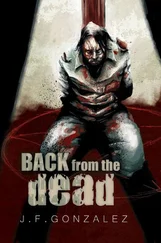“Was it? How do you know that?”
“It’s no secret. I was down at the harbor myself when the ship with the coffin came in. An undertaker in Marnäs took care of it.”
Julia gave this some thought as they were approaching Marnäs. She braked and turned.
“But we didn’t get to speak to the person who sent the sandal today,” she pointed out.
“No, but you did see his house,” said Gerlof. “Martin was bad today, but sooner or later we’ll be able to speak to him. Next week, maybe.”
“I can’t stay here just for that,” said Julia sharply. “I have to get back to Gothenburg.”
“So you say,” said Gerlof. “When are you leaving?”
“I don’t know. Soon... tomorrow, maybe.”
“Tomorrow’s the funeral in Marnäs church,” said Gerlof. “Eleven o’clock.”
“I don’t know if I’m going to go,” said Julia, turning into the entrance to the home. “I didn’t even know Ernst, after all. His death is tragic and I’ll never forget the morning I found him... but I didn’t know him.”
“Try to come anyway,” said Gerlof, opening the car door.
Julia got out to help him. She carried the bag of liquor and his briefcase.
“Thank you,” said Gerlof, leaning on his cane. “My legs are much better now.”
“See you soon,” said Julia when she’d walked him as far as the elevator. “Thanks for today.”
She watched Gerlof open the elevator door and step in without falling over.
Then she returned to the car and turned out onto the road again, heading east. She decided to buy some groceries in Marnäs before she went down to the boathouse.
It was slowly beginning to grow dusk now; it was twenty past four. Normal people, people who had jobs, were no doubt on their way home from work.
But some people hadn’t gone home yet. As she drove past the little police station in Marnäs, she could see there was a light on inside.
Julia stopped at the grocery store and bought milk and bread and something to put on it. She didn’t have much money left in her account, and there was over a week left until her next benefit payment.
When she came out of the store, she noticed the light in the windows of the police station again. She thought about Lennart Henriksson, and about what Astrid had told her about him. Lennart too had been affected by a great tragedy in his life.
Julia stopped, looking at the light in the windows. She put the food in the trunk of the Ford and locked it. Then she crossed the road and knocked on the door of the police station.
“I’ve always blamed my mother,” said Julia. “She fell asleep that afternoon and left him by himself.”
She blinked the tears away and went on:
“I’ve blamed my father even more... because he went down to the sea to mend his nets. If Gerlof had been at home, Jens would never have left the house — Jens loved his grandfather.”
Julia sniff led and sighed.
“I’ve blamed them for many years,” she said, “but it was actually my fault. I left Jens and went to Kalmar to meet a man. Although I knew it was a waste of time. He didn’t even turn up.” She stopped speaking, then she said, softly, “It was Michael... Jens’s father. We’d split up and he was living in Skåne, but he’d talked about catching the train and coming up to see me... I’d thought we might be able to try again, but he wasn’t interested.” She sniff led again. “So of course Michael was absolutely no help either when Jens disappeared, he was still in Malmö... But the main person who was to blame was me.”
Lennart sat in silence on the opposite side of the table, listening — he was a good listener, thought Julia — and letting her talk. Now he said:
“It was nobody’s fault, Julia. It was simply, as we say in the police... a series of unfortunate circumstances.”
“Yes,” said Julia. “If it was an accident.”
“What do you mean?” asked Lennart.
“I mean... unless Jens went outside and met somebody who took him away.”
“But who?” said Lennart. “Who would do such a thing?”
“I don’t know,” said Julia. “A madman? You know more than I do about these things, you’re a policeman.”
Lennart shook his head. “Such a person would need to be disturbed... extremely disturbed. And they would almost certainly have come into contact with the police already for other violent crimes. There was nobody like that on Öland at the time. Believe me, we looked for suspects... We knocked on doors, we went through our records.”
“I know,” said Julia. “You did what you could.”
“Our assumption was that Jens went down to the water,” said Lennart. “It’s only a few hundred yards, and it would have been easy to get lost in the fog that day. Many people who have drowned in Kalmar Sound have disappeared forever, both before and since...” He stopped. “It must be difficult for you to talk about this, and I don’t want to...”
“It’s fine,” said Julia quietly. She thought for a moment, then added, “I didn’t think it would be a good thing to come here in the autumn and face it all again, but it has been. I’ve started to get over Jens... and I know he isn’t coming back.” She made an effort to sound absolutely certain: “I have to move on.”
It was Tuesday evening in Marnäs. Julia had intended to call in briefly to see Lennart in the police station, but she was still there. And Lennart had obviously been about to finish work for the day, turn off the computer, and go home, but he’d stayed.
“So you’re not on duty tonight?” Julia had asked.
“I am, but not until later,” said Lennart. “I’m on the building committee and we’ve got a meeting tonight, but not until half past seven.”
Julia wanted to ask what political party he represented, but there was always the risk that she wouldn’t like the answer. Then she wanted to ask if he was married, but she might not like that answer either.
“We could order a pizza from Moby Dick,” said Lennart. “Would you like one?”
“That would be nice,” said Julia.
There was a kitchen in the office at the police station. Although the offices were impersonal, there was a certain level of home comfort in the kitchen in the form of curtains, red rag rugs on the floor, and even a couple of pictures on the walls. A spotlessly clean coffee machine stood on the equally spotless counter. There was a low table with armchairs in one corner, and when the pizzas topped with ham had been delivered from the bar down by the harbor, Lennart and Julia ate them there.
As they were eating they began to talk — and their conversation centered on sorrow and loss.
Afterward Julia couldn’t remember which of them had first started to make things so personal, but she assumed it was her.
“I have to move on,” said Julia. “If Jens disappeared in the sound, I have to accept it. It’s happened before, as you say.” She added after a pause, “It’s just that he was afraid of the water, he didn’t even like playing on the shore. So I’ve sometimes thought he went the other way, out onto the alvar. I know how it sounds, but... Gerlof thinks the same.”
“We looked on the alvar too,” said Lennart quietly. “We looked everywhere over the next weeks.”
“I know, and I’ve been trying to remember... Did we meet at the time?” asked Julia. “You and I, did we meet?”
The police officers who had turned up and asked questions when Jens disappeared were just a nameless row of faces to her. They had asked their questions, she had answered, frantically at first, and then numbly. Who they were had been irrelevant, just as long as they found Jens.
Much later she had realized that some of their questions had focused on the possibility that she herself — for some unknown reason, insanity perhaps — had killed her own son and hidden his body.
Читать дальше












